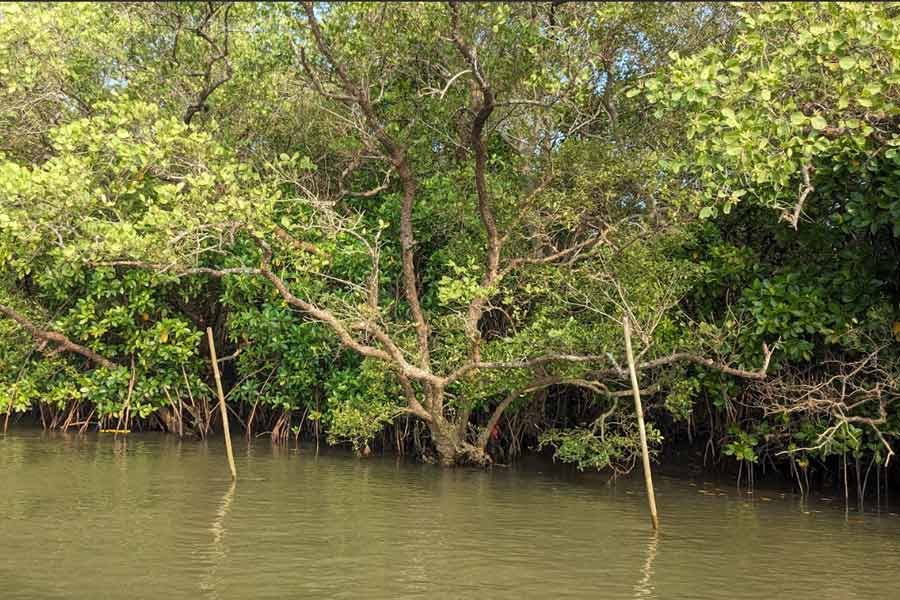The climate security of Calcutta and the Sunderbans is intrinsically linked. The city’s air and water pollution levels adversely affect the mangroves, claimed experts at a meeting on Monday.
The citizen assembly, organised by environmentalists from Calcutta and Melbourne, was attended by environmental experts, scientists and other eminent personalities from different walks of life.
“We will soon prepare a white paper and address the decision makers in state and country; as well as the global community as million in the Sunderbans, Calcutta and south Bengal are suffering despite contributing minimally to global carbon pool” pointed out Michael Douglas, from RMIT university Melbourne, and social activist and filmmaker Mahadeb Shee on behalf of the organisers.
“An increase of even one per cent of emissions in Calcutta impacts the carbon sink capacity of the mangroves heavily,” said Abhijeet Chatterjee, a scientist from Bose Institute.
“With the city having minimum road space and the surge in private vehicles, it will be impossible to move in Calcutta within a few years unless we actively promote climate-friendly public transports like trams and waterways,” opined transport expert and IIT Kharagpur professor Bhargab Maitra. Pradip Kakkar of PUBLIC, the organisation that has moved court on sustaining trams, echoed him.
Jawhar Sircar, former bureaucrat and member of parliament, accepted that most governments, irrespective of their political hues, do not attach much importance to the environment.
“The mangroves are crucial for the survival of not only Sunderbans, but also for Calcutta, as they act as a firewall to weather hazards; hence, destruction of mangroves is like committing suicide,” said a senior environment department official.










